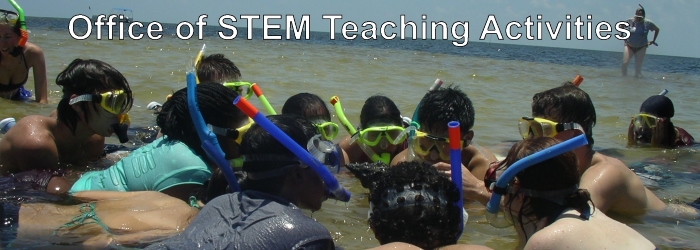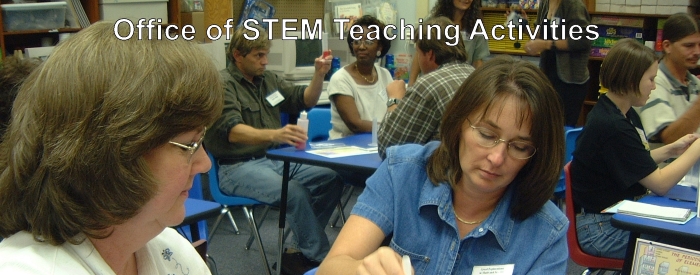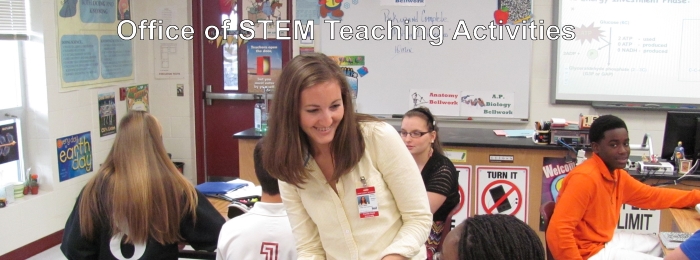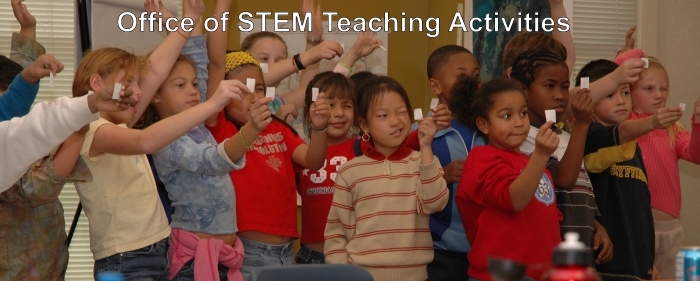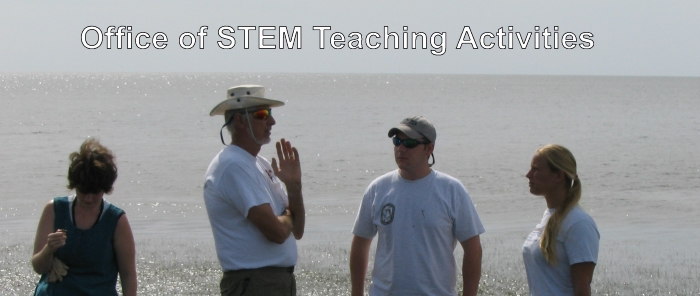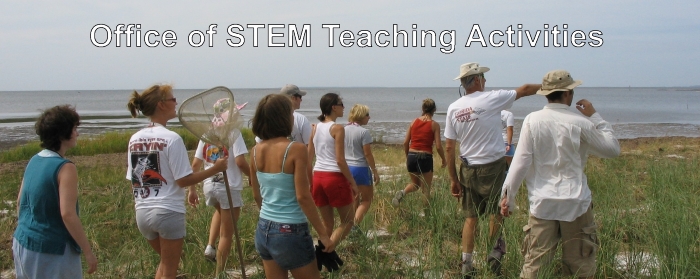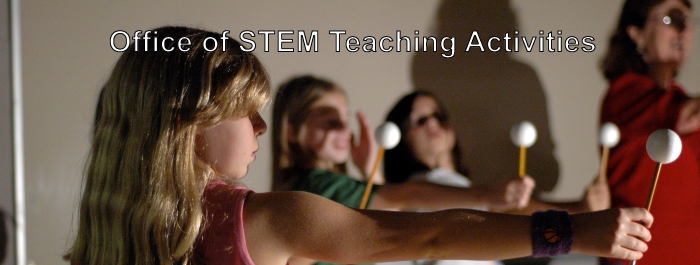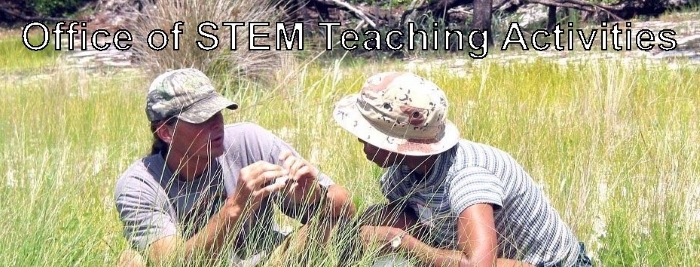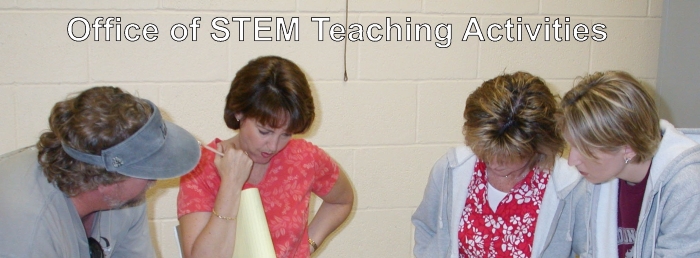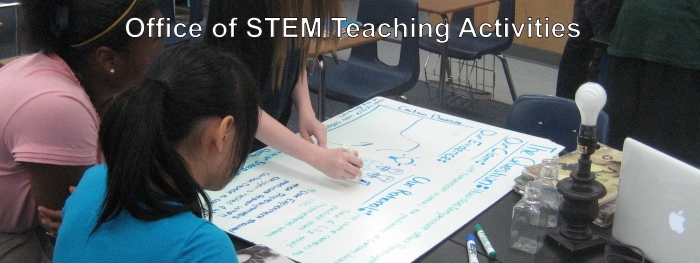STEM Education ResearchResearch on Computer Science Integrated with Middle School Mathematics This NSF-funded research project brings middle-school mathematics teachers together with university Computer Science (CS) faculty and STEM education faculty to design, develop, and test modules in which CS is integrated into the instruction of middle-school general-mathematics courses. General mathematics courses are targeted as few CS curriculum modules ready for integration into courses at this level can be found; the work that has been done seems to focus on algebra which tends to enroll the more mathematically advanced middle-school students. The development of CS modules in this project will be guided by the principles of Design-Based Research (Brown & Campione, 1996; Design-Based Research Collective, 2003) to create and extend knowledge about the development, enactment, and methods used to sustain this curriculum and instructional model. As the project progresses, data is being collected on: (1) what it takes for middle-school mathematics teachers to successfully integrate CS instruction into their teaching, (2) the mathematics and CS student learning engendered by the CS modules, (3) potential changes in STEM attitudes and STEM career interests of the students, and (4) capacity building for teaching CS in the middle school context. For more information on how to access the integrated curriculum modules see: Coding Curriculum for Middle School Students Research on Features of Teacher Professional Development that Engender Change in Teaching Practice This NSF-funded research project entitled, Learning Through Collaborative Design (LCD): Professional Development to Foster Productive Epistemic Discourse in Science, seeks to investigate the role of collaborative lesson design in supporting teachers’ professional growth around productive discourse in high school science classrooms. New portraits of science learning at the core of the Next Generation Science Standards (2013) envision students as engaged in productive epistemic discourse with others -- work that involves talk, joint attention, and shared activity aimed at the construction, critique, and revision of science ideas. For this vision to become a reality for all students in science classrooms, effective means of professional development (PD) for teachers is essential. The LCD project will examine collaborative design, an activity that is often used in PD for the generation of curricular materials, and explore its promise in fostering biology teachers’ professional growth as part of a larger PD experience focused on epistemic practice. The study will occur in two phases, first a qualitative phase and finally a field study that employs MANCOVA and HLM analytical techniques to compare the LCD-PD to an alternative PD experience that is similar to LCD professional development but does not include collaborative design. Research on Student-Centered Instruction Transforming science learning through student-centered instruction that engages students in a variety of scientific practices is central to national science-teaching reform efforts. Faculty members from the Office of Science Teaching Activities are actively engaged in scientific research on the effectiveness of science teaching practices. One line of this research has been on the effects of the combination of research-based curricula and teacher professional development on student learning and on teachers' practice. One such study using a large-scale, randomized-cluster experimental design to compare the effects of student-centered and teacher-centered approaches on elementary students' understanding of science concepts was published in Science (October 5, 2012, Vol. 338:105-108). A second line of research is investigating the effects of the Argument Driven Inquiry instructional model on student learning. Publications from this line of work as well as on changes in teachers' practice are in preparation. Research on Teacher Pedagogical Discontentment It is well established that many teachers are resistant to take up the messages of change in science teaching if these messages require them to substantially shift their teaching practices. What accounts for this resistance? There is a large body of literature on the effects of teacher beliefs on teaching practices. One line of research into the question of resistance to reform in which faculty members from the Office of Science Teaching Activities engaged has examined teacher pedagogical discontentment. Our work has indicated that pedagogical discontentment contributes to resistance to reform. Further, this work resulted in the design and validation of an instrument to measure pedagogical discontentment. One of the papers resulting from this work can be accessed in Research in Science Education (2011, vol. 41:299-317). Research on the Effects of Research Experiences for Teachers Inquiry (engaging in scientific practices) is seen as central to the reform of science teaching and learning, but few teachers have experience with scientific inquiry and thus possess very naive conceptions of it. One form of professional development, Research Experiences for Teachers (RETs), allows teachers to experience scientific inquiry by participating in it alongside practicing scientists. RETs are funded in the hopes that these experiences translate favorably into inquiry in the classroom. This line of research investigated the effectiveness of such programs and what are their necessary and sufficient aspects to positively impact student learning. Publications from this research project can be found in Journal of Science Education (2009, Vol. 93:322-360 and 2010, Vol. 94:577-616) and the Open: American Educational Research Association Journal (2016, Vol. 2 No. 4:1-16). Research on Teacher Interactions with Curricula The findings of science education research and the central features of the national science teaching reform efforts have produced promising, well-designed instructional materials that have undergone years of development, field-testing, and revision; however, despite extensive efforts to precipitate educational change using such materials, classroom teaching practices remain largely unaffected. Reform-minded teaching places many demands on teachers, requiring both well-designed curricula and professional development to support teachers to change their classroom practice. Further, research has shown that teachers' personal characteristics are very influential in shaping their teaching practices. Faculty members in the Office of Science Teaching Activities have been investigating the interaction of context and practice with teachers' knowledge and beliefs about science teaching through a large-scale, randomized cluster research project. Results from this work were presented at several national meetings and are published in the Journal of Research in Science Teaching (2018, Vol. 53:348-370). |

